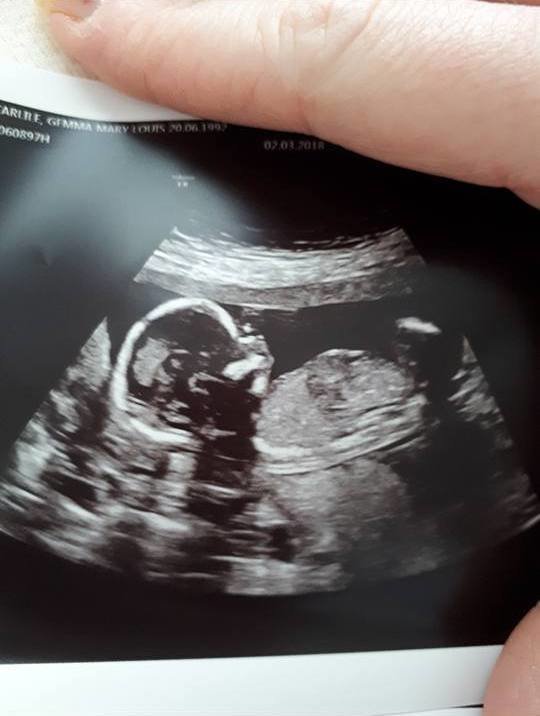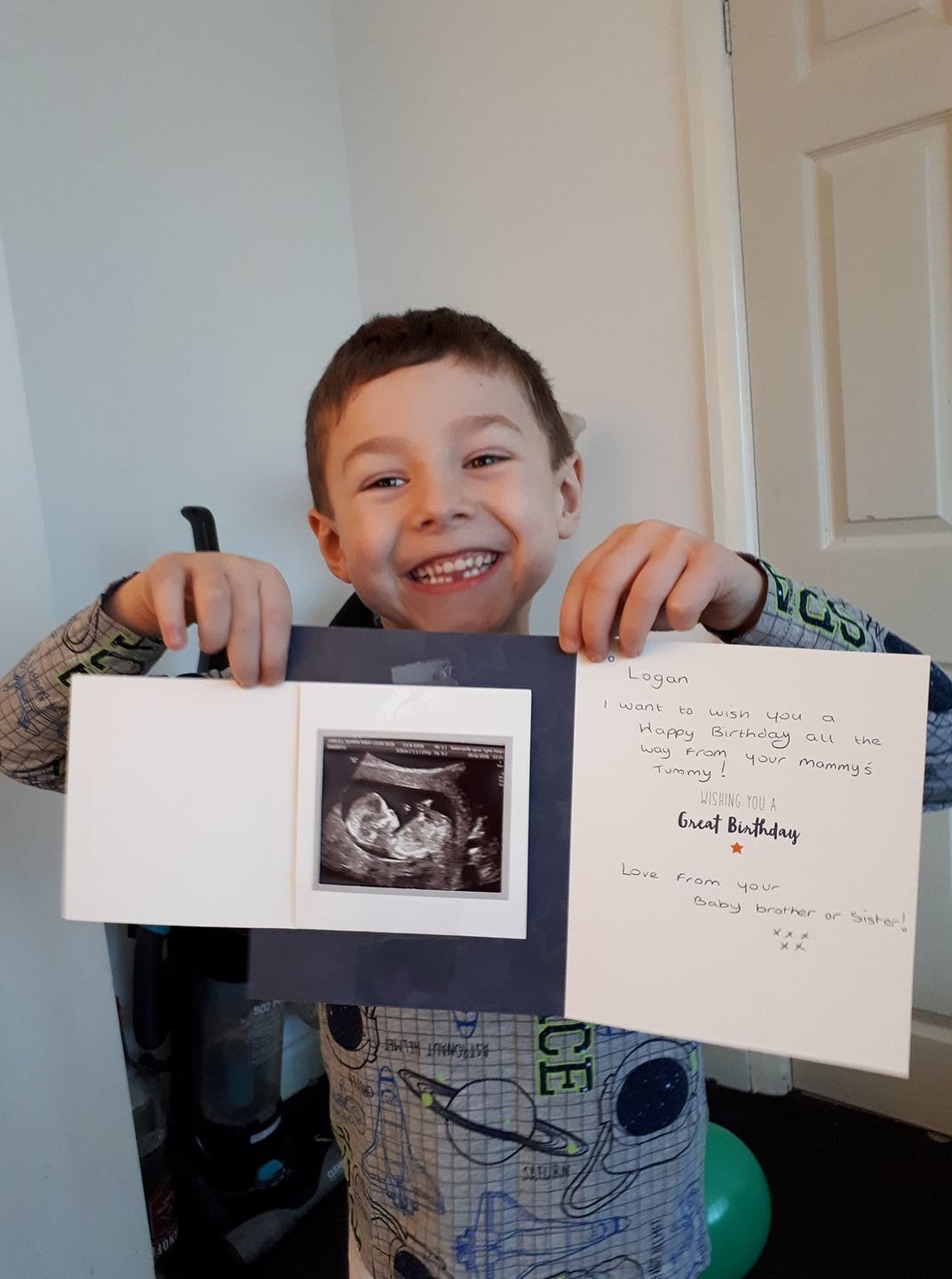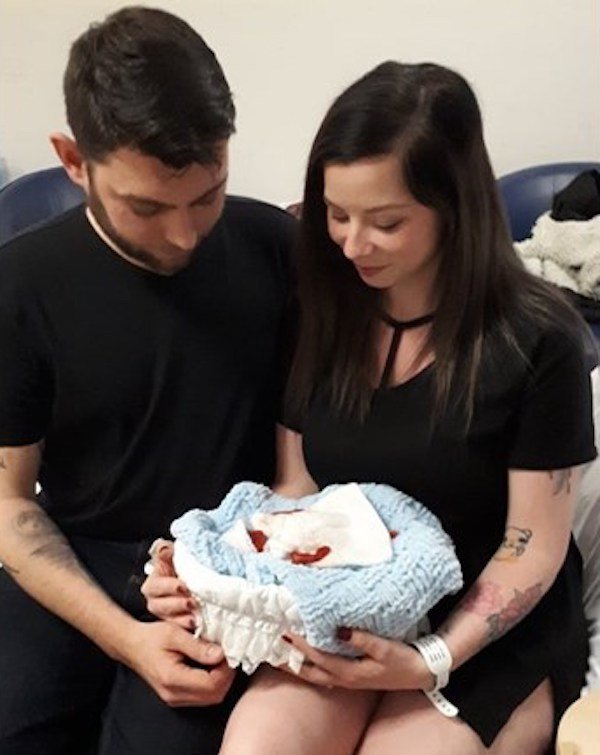
Pregnant moms are constantly on the lookout for things that may pose a danger to them and their unborn babies. Of course, there are the obvious things like certain foods, smoking, and the flu that we all know are best for pregnant women to avoid. But there are also more sinister things out there that many expecting moms don't even know about. After an illness referred to as "slapped cheek syndrome" caused her to miscarry her baby, one mom is speaking out in hopes that other pregnant women can avoid the same tragedy she experienced.
Gemma Carlile was almost 17 weeks pregnant when she was diagnosed with "slapped cheek syndrome."

Also referred to as Fifth Disease, the condition is a viral illness that usually shows itself in the form of a red rash on the cheeks. Mayo Clinic states that the illness is most common in young kids during the spring and winter months since it spreads through saliva and nasal mucus but can also be contracted by adults.
According to the Centers for Disease Control and Prevention (CDC), slapped cheek syndrome can be passed down from a pregnant mother to her baby — causing severe anemia and even miscarriage. Although about half of pregnant women are immune to Fifth Disease, which ultimately protects their babies from contacting it, others aren't so lucky.
Unfortunately, that's exactly what happened to Carlile, who told Chronicle Live that she contracted "slapped cheek syndrome" at the nursery she works in Newcastle, United Kingdom.
Carlile's unborn baby boy started showing signs of distress and got incredibly sick, very fast.

Carlie, who also has a 7-year-old son, shared that she was nearing 18 weeks when her baby first started showing signs of fetal anemia.
“Due to already having a large hematoma in my uterus, I was re-scanned two days later which confirmed my boy was becoming rapidly more ill," she told Chronicle Live. "It was confirmed the anemia was caused by the slapped cheek.”
Shortly after the diagnoses, doctors told Carlile and her husband, Terry, that their baby needed an in-womb blood transfusion.

Obviously, this decision was an incredibly hard one to make. National Health Service states that in-utero blood transfusions carry the risk of possible miscarriages. But these worried parents didn't feel like they had any other option to save their baby. “[The transfusion] was scheduled for two days later as he was deteriorating so quickly, his heart was working so hard that if we didn’t agree to the transfusion we would lose him anyway,” she said.
But only two days after the transfusion, they were given the devastating news that their little one had died.

The mom says the news was absolutely heartbreaking. On March 28, at only 19 weeks pregnant, she decided to induce labor and gave birth her baby boy — who she and her husband named Terence Arthur. “I pushed him into the world, he was beautiful and perfect," Carlile said. “We held him and kissed him, the pain and love I felt for my little boy is indescribable. We left the hospital with empty arms and an empty heart that day.”
That pain is exactly what pushed Carlile to speak out and raise awareness for other parents.

“I work in a childcare setting and have done for more than four years and at my first midwife appointment I asked what I should be aware of,” she said. “I was informed about slapped cheek but told not to worry as I was ‘probably immune anyway,’ well my case and many other cases prove not everybody is immune whether they have worked with children or not.”
In the wake of her baby's death, Carlile created a Change.org petition calling for the British government to spread more information about Fifth Disease in schools. She also wants hospitals to offer preliminary blood tests for pregnant women who are likely to come in contact with the disease. “Although we won’t be able to eradicate slapped cheek, we can at least try and come together and raise awareness," she said. “I want to put something in place so fewer people have to go through this."




